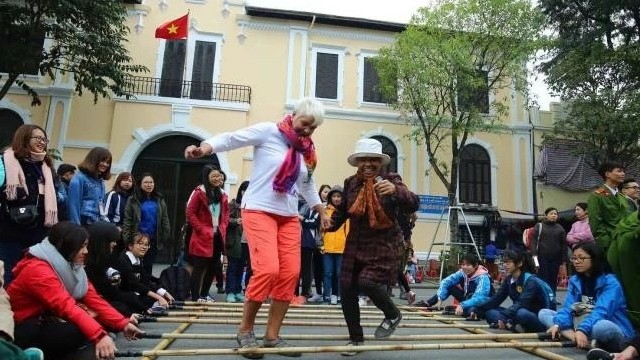Worshiping the Whale: Unique Cultural Beliefs of Quang Binh's Coastal Villages
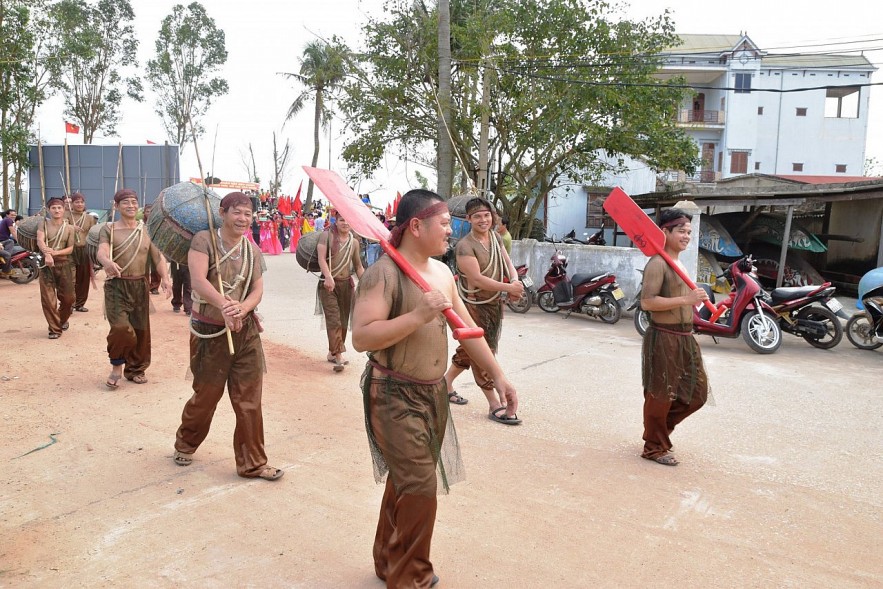 |
| Fish ceremony in Quang Binh. (Photo: Phong Nha Explorer) |
For many generations, the inhabitants of Quang Binh have relied on the sea to make a living. The sea offers them food, income, and, in some cases, a source of divine inspiration.
According to the beliefs of the Quang Binh people, the "God Fish" (whale) is a guardian protecting fishermen, especially during storms or on their offshore voyage. Ancient tales tell of how Guanyin Buddha, a goddess of compassion, tore her clothes into thousands of pieces and released them into the sea. She turned them into whales and gave them bones of elephants so that they have the strength to save people. Since then, whenever a boat struggles in the ocean, whales appear to bring it to the shore.
Fishermen in Canh Duong commune (Quang Trach district, Quang Binh province) says in the old days, they used to pray for protection from nature when being hit by a storm during their sea trip. Miraculously, a whale would appear, leaning on the side of the boat to help them survive through the storm.
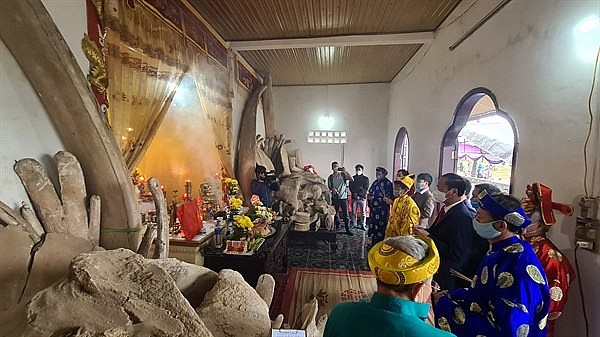 |
| A ceremony held in a temple for whales. (Photo: Bao Van Hoa) |
Stemming from the belief that whales help prevent accidents, fishermen have respected and worshiped this kind of fish. The belief also explains the relationship between fishermen and whales and why whales are called "God Fish" in the region.
"Dia chi Dong Hoi" (Geography of Dong Hoi), a book by Nguyen Tu mentioned whale worship as a longstanding culture of the inhabitants of the coastal area of Dong Hoi. People often call big whales "Sir Fish" and small whales "Uncle Fish" or "Aunt Fish".
The fish festival in Quang Binh sea is held annually or every two years, depending on each locality. For example, in the communes of Canh Duong, Quang Phu, and Thanh Trach, people hold the festival on the first full moon of every lunar year. Meanwhile, in Thanh Danh, Xuan Loc, and Tan Xuan villages the festival is held once every three years.
Fishermen often regard the fish festival as the most important holiday of the year. They pray for abundant fish and favorable weather on the occasion.
The fish festival often starts with a spiritual ceremony, which includes four rituals: "Vong" (reporting about the ceremony), "Nghinh Ong" (welcome the god to the ceremony), "Co hon" (pray for the dead), and "Chanh te" (the main ceremony).
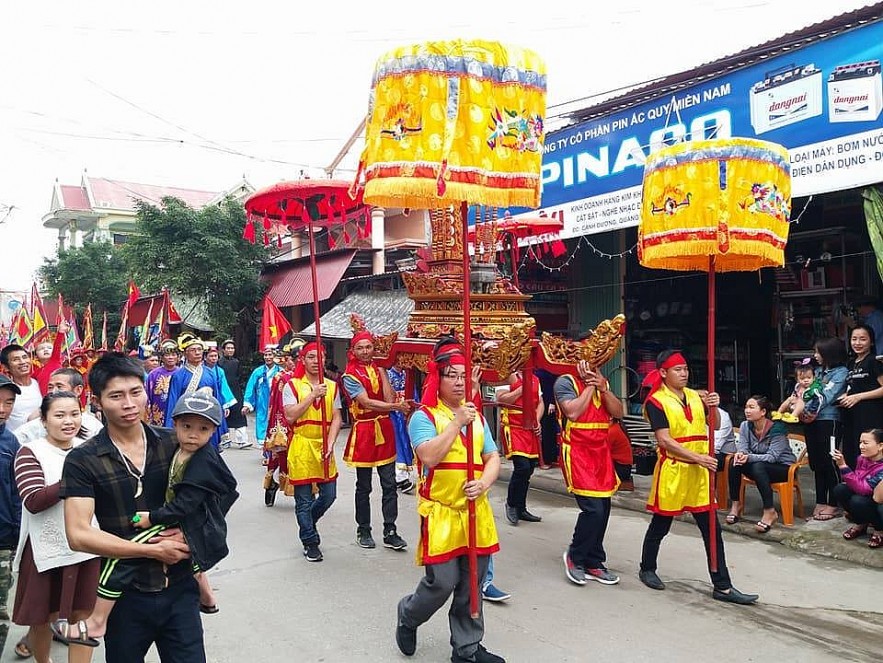 |
| Fish ceremony in Quang Binh. (Photo: Phong Nha Explorer) |
All four rituals are held with art performances, from singing to dancing to demonstrating the everyday activities of fishermen.
The festival holds the same importance as the ones for the village's Thanh Hoang (founders and gods). The ceremony often takes place at night. All boat owners in the village participate to show their respect to the god of fish and pray for a bountiful fishing season, health for their family, and peace for the village and country.
The people of Quang Binh coastal area stick to their traditional customs. Whenever a dead whale is found on the shore, the villagers take care of its body, solemnly bury it, and worship the fish.
Many tombs are built for whales along the coast of Quang Binh. Some villages establish a temple for "God Fish" and held death anniversaries every year.
Whale worship in Quang Binh is a unique cultural feature, a bond to connect fishermen in coastal villages and communities. The festival brings joy to the fishermen, building a confident state of mind and faith in a peaceful seafood harvest.
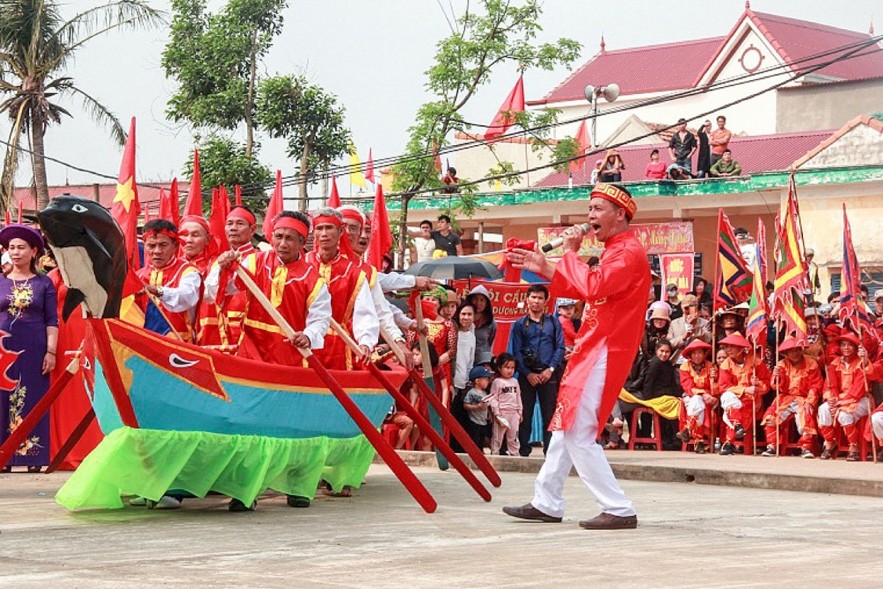 |
| Fish ceremony in Quang Binh. (Photo: Phong Nha Explorer) |
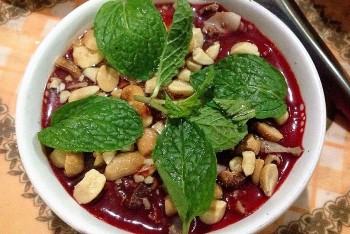 | 5 Bizarre Vietnamese Dishes That Foreigners May Find Strange Diverse and unique Vietnamese cuisine is loved by international friends, but there are also some dishes that foreigners are hesitant to try. Are you brave ... |
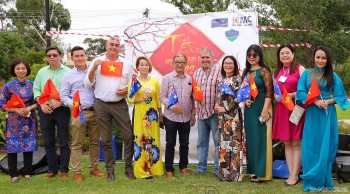 | Lunar New Celebrations Introduces Vietnamese Traditional Customs in Australia The Association of Vietnamese Mothers in Australia has held a get-together to celebrate the Lunar New Year (Tet) for families at Sunshine District, Victoria, where ... |
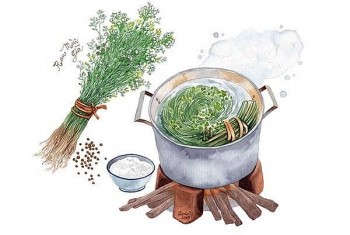 | Explain Vietnamese Culture: Why Coriander Used to Purifie Soul and Body for New Year Boiling up the coriander and bathing with the fragrant water are a ritual prescription for a thorough Tet cleansing. |
Recommended
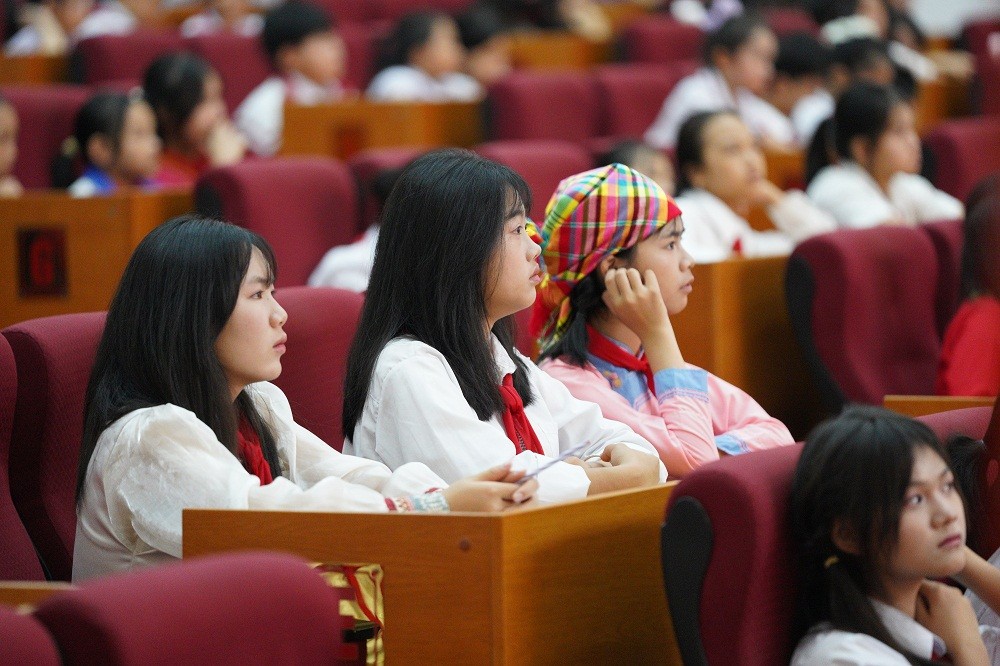 Viet's Home
Viet's Home
Lai Chau National Assembly, People's Council Delegates Hold Dialogue with Children
 Viet's Home
Viet's Home
24 Children with Disabilities in Northern Provinces Received Free Surgery
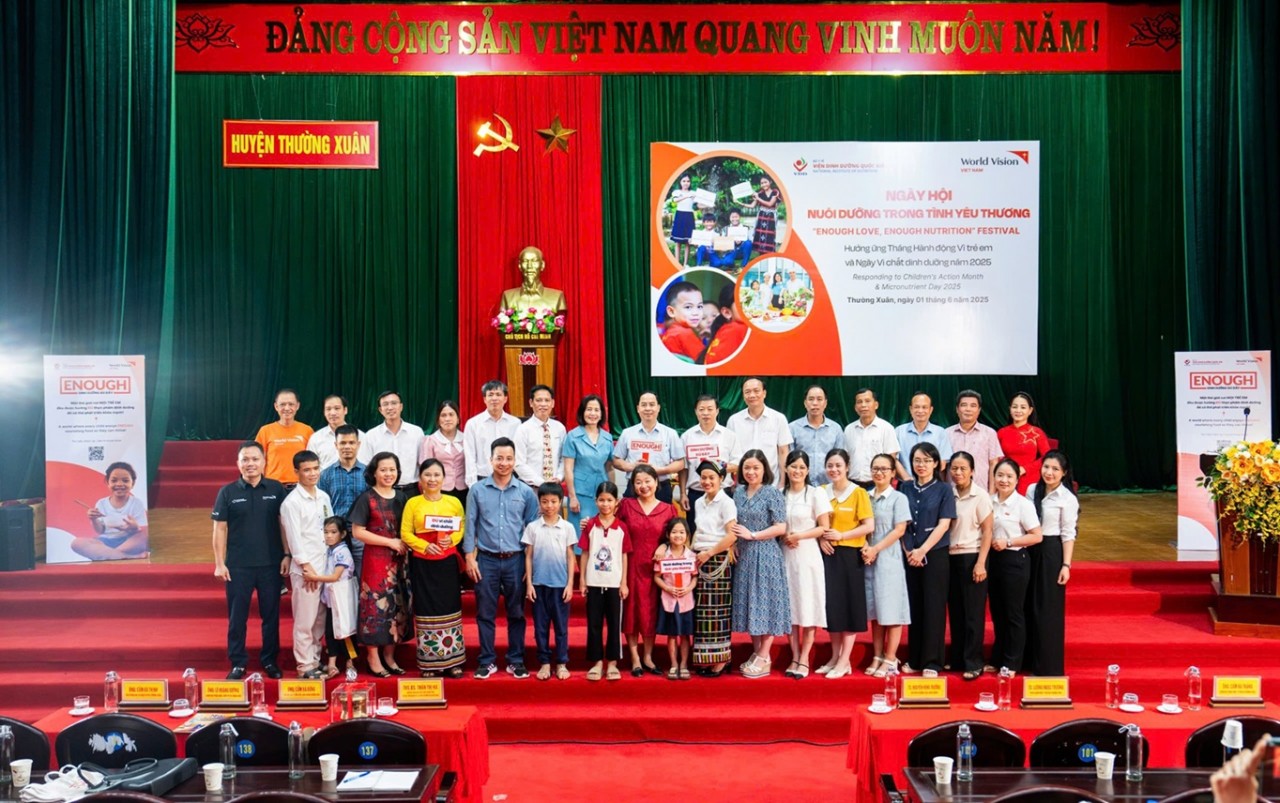 Viet's Home
Viet's Home
World Vision Promotes Comprehensive Nutritional Care for Vietnamese Children
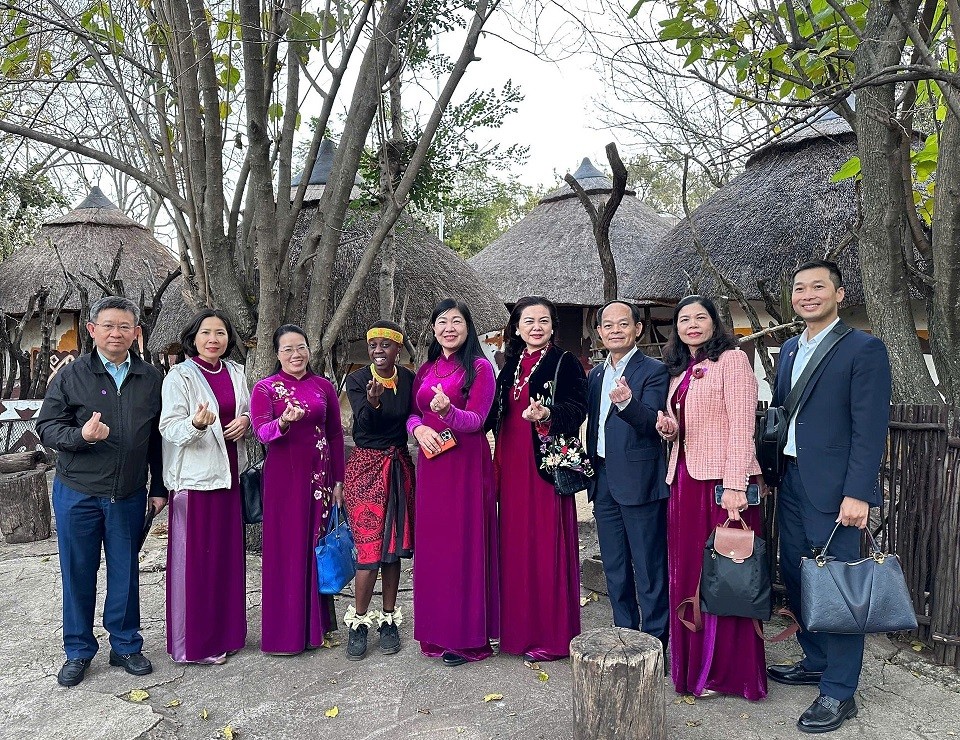 Viet's Home
Viet's Home
Hanoi, South Africa Strengthens People-to-people Exchanges, Expands Multi-sector Cooperation
Popular article
 Viet's Home
Viet's Home
Hue City to Raise Awareness on Mine Accident Prevention
 Focus
Focus
Vietnam Leaves Imprints on the World Peacekeeping Map
 Viet's Home
Viet's Home
“Global Vietnamese Singing 2025” - Connecting Hearts Longing for Homeland
 Viet's Home
Viet's Home





